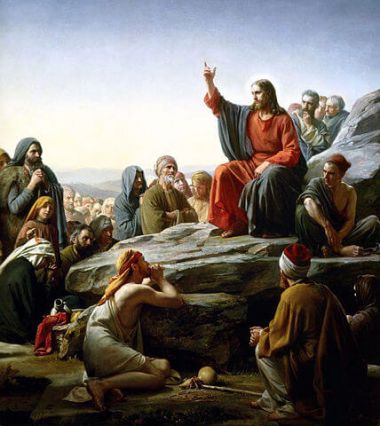D.C. pastor says radical hatred can be overcome by radical love as Jesus Christ Himself showed

A pastor in Washington D.C. is making a personal effort to heal the apparent rift between the Church and State at a time when their partnership is most needed amid these troubled times, CNN reported.
Rev. Dr. Aaron Graham, the Lead Pastor of The District Church in Washington, D.C., noted that Jesus Christ once preached on the shores of the Sea of Galilee only a few miles away from where the much despised Islamic State (ISIS) holds ground.
There, Jesus delivered the Sermon on the Mount where He imparted one of history's most radical messages—that radical hatred can be overcome by radical love.
"Jesus blessed the peacemakers and the persecuted, while teaching His followers to love their enemies and pray for those who persecute them," Graham said.
With this example, the pastor said Christians "should be able to absorb all the bad news and return it with love."
Graham said the problem in America is that amid all the senseless acts of violence that have generated fears and insecurity across the nation, the faith (Church) and policy (government) communities have not been able to unite to promote the common good.
"The policy community often sees the faith community as narrow-minded and out of touch; and the faith community often fears that the policy community will reduce their faith or use it as a means to an end," he said.
"Yet both communities have at their core the motivation to make this world a better place and serve the public good."
Graham then offered four practical ways for the two communities to work together to implement "common-sense" policies that would make all Americans feel safer.
● First, members from the two communities should show up to each other's events with no agenda other than to learn and build relationships.
● Second, they should invite one another to speak at each other's events. "Having policy experts come and speak at our church events, and having faith leaders speak at policy events should be the norm far more than it is," Graham said.
"Churches should have an interest in learning how the conflict in the Middle East is destroying the holy sites and hurting people who are made in the image of God. The policy and development community should have an interest in understanding the religious motivations of people to stop the spread of extremism and hate, and create partnerships to deliver aid to those in need on the ground."
● Third, the Church should show the government how to lead by example. "We can encourage policy makers to give their time, expertise and finances to help advance the causes we both care about on the grassroots level," Graham said.
"For example, as we prepare for Advent this Christmas season, The District Church is participating in National Refugee Sunday and collecting a special offering to help care for Syrian refugees who are fleeing persecution and war. Whether we consider ourselves people of faith or not, we all can respond to the needs of the people of Syria who are living in what has become the greatest humanitarian crisis happening in our world today."
● Fourth, the government can educate the Church. "They can help correct the narrative of fear that is leading people to refuse to welcome refugees on national security grounds," Graham said.
"Many people do not realise how few people have been arrested for terrorism since 9/11. Refugees are the most vetted group of people to enter America. We are right to think about our national security, but we are wrong to jump to conclusions so quickly."
Graham said ISIS represents a clear and present danger to the world. "But, to paraphrase Dr. Martin Luther King, Jr.: the way you drive out darkness is with light, not with more darkness," he said.











